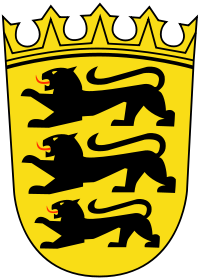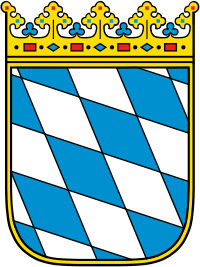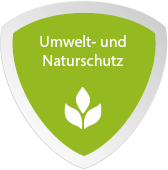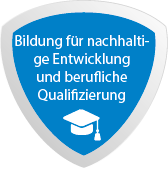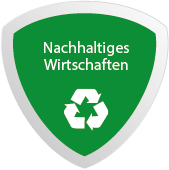Die nachfolgenden Inhalte stammen aus dem Kooperationsprogramm "Alpine Space programme" (genehmigt am: 17.12.2014).
Kurzbeschreibung
The Alpine Space Programme (ASP) can provide a framework for the exchange and interaction of organisations involved in the protection of natural and cultural heritage. It embraces the overall goal of strengthening a transnational identity and supports cooperation structures by developing adapted strategies, tools and models to this end.
Förderziel
The ASP aims to increase the consistent, balanced and sustainable use of the area’s cultural and natural heritage by increasing awareness on the present potential and future challenges and developing new solutions (e.g. adoption of governance tools, development of new production chains, conflict management tools etc). The results to be delivered by the projects reside initially in the fostering of a transnational Alpine identity using the transnational “label” as a catalyst (output: transnational cooperation structures and strategic elements).
Fördergegenstände
Bildung, Qualifizierung, Demonstrations-, Modell- und Pilotvorhaben, Information, Kommunikation, Beteiligung, Strategieentwicklung, Konzept-, Teilkonzepterstellung, Vermarktung, Vernetzung, Kooperation, Wissenstransfer
Zuwendungsempfänger
Local, Regional and National public authorities; Agencies; Higher education institutions; Education/training centres; Business support organisations; Enterprises incl. SMEs; Interest groups including NGOs.
Förderfähige Gebietskulisse
In Bayern: Oberbayern und Schwaben
In Baden-Württemberg: Tübingen und Freiburg
Kooperationsmöglichkeiten bestehen mit folgenden Staaten: Österreich, Frankreich, Italien, Liechtenstein, Slowenien und der Schweiz.
Achtung: Bitte prüfen Sie im Kooperationsprogramm (KP, CP) welche Teilräume der Staaten förderfähig sind.
Art der Unterstützung
non-repayable grant
Beschreibung
Actions are assigned to Programme-Part "Liveable Alpine Space"
Indicative Actions to be supported are:
- Organise knowledge transfer, exchange of good practice examples, networking and development of innovations concerning models for non-profit organisations and voluntary work in the cultural, arts, and social sector;
- Develop Alpine Space-wide cultural initiatives to promote a transnational Alpine identity, enhance awareness and envisage what the future Alpine cultural heritage could be;
- Develop education, training, qualification and capacity development models and networks, and set up of pilot actions to re-invent traditional jobs in an innovative context;
- Design implementation strategies, set up and test of models to better capitalize and innovate Alpine cultural and natural heritage by enterprises, research institutions, NGOs and local population using exchange of experiences, mutual learning and pilot activities;
- Design implementation strategies, set up models and test pilot actions to combine tourism with the promotion and protection of Alpine natural and cultural heritage;
- Set up, test and implement negotiation, mediation, participation and conflict resolution models in the context of tourism, culture, local needs and aspirations and economic growth in the context of cultural and natural heritage;
- Develop and test control systems for the labelling and funding of green and fair products respecting and promoting Alpine Space cultural and natural heritage.
Hinweis: Weitere förderrelevante Informationen zu den Projektauswahlkriterien der Maßnahme finden Sie ab S. 45 des Kooperationsprogramms.
Zielgruppe
General public; Those groups listed under the caption “Zuwendungsempfänger”; Enterprises, including SME.
Zentrale Zuwendungsvoraussetzungen
Wichtige weitere Informationen zu Zuwendungsvoraussetzungen, wie z. B. die Mindestanzahl an Projektpartnern, finden Sie in den zugehörigen Unterlagen (siehe Link zu Downloads/Infos in der Kategorie Dokumente).
Auswahlverfahren
Projects will normally be selected in a two-step application procedure following calls for project proposals. Calls shall be launched regularly. Terms of reference (ToR) will be published for each call in which programme rules and expectations are set out. The application process will be carried out completely in an online system. Only applications being pre-selected by the Programme committee (PC) in step 1 of the application procedure (“expression of interest – EoI”) will be invited to submit a complete application form (AF) (step 2). In certain cases, e.g. for targeted calls for proposals with specific ToR, the programme may launch a one-step application procedure.
Assessment and selection: The Partner States ensure a clear, transparent and traceable evaluation by the Joint Secretariat (JS) and selection of projects by the PC. The criteria and details on the evaluation process (set out in the project implementation handbook) will be made available in the application documents.
Projektauswahlkriterien
The selection of projects will be carried out following a standardised assessment procedure (Article 12 of Regulation (EU) No 1299/2013). The objectives to be achieved are:
- Assess the relevance of a project proposal;
- Assess the feasibility of a project proposal;
- Define a transparent and objective basis for decision making on a proposal rejection or approval;
- Provide a base for communication and improvement among programme bodies and applicants.
The detailed assessment criteria will be laid down and made available to project applicants in the project implementation handbook (PIH).
Hinweis: Weitere förderrelevante Informationen zu den Projektauswahlkriterien der Maßnahme finden Sie ab S. 48 des Kooperationsprogramms.
Laufzeit
Start der Maßnahme: 01.01.2014
Ende der Maßnahme: 31.12.2023

